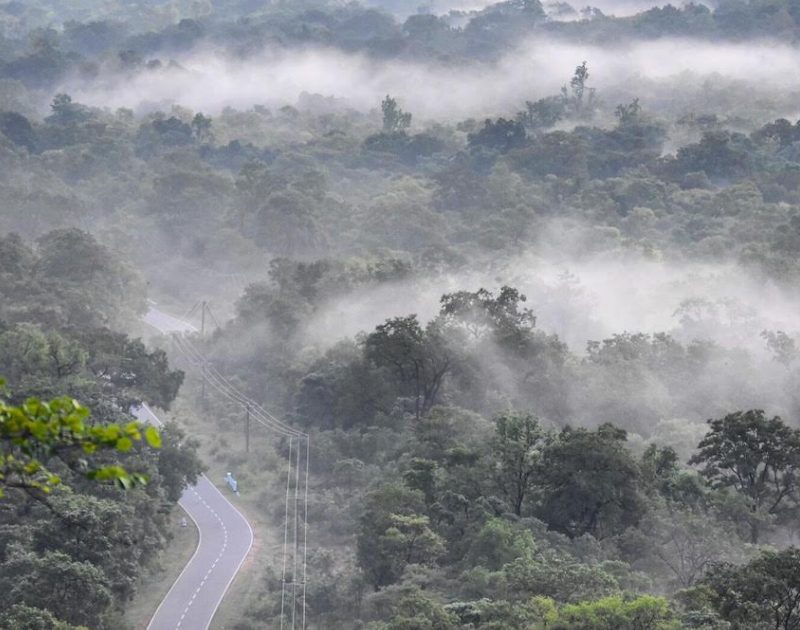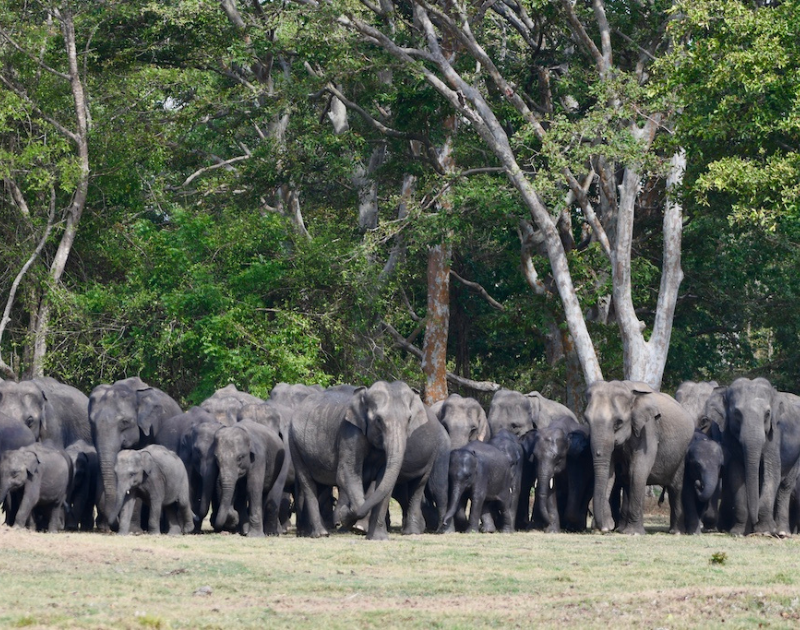
- Home
- Knowledge Insights
- Why Moving Beyond GDP is Essential to Avert Planetary Disaster
Degrowth and green growth are concepts that have gained traction the political economy discourse, especially as we near the risk of a global recession. and face climate change impacts. ‘Degrowth’, was coined in 1972.
by social philosopher André Gorz is often considered a radical approach to policy and challenges capitalism, by placing greater importance on social and ecological well-being. “Green growth’, which the OECD. defines as “fostering economic growth and development, while ensuring that natural assets continue to provide the resources and environmental services on which our well-being relies”. The latter might be more applicable to Sri Lanka in light of the current economic challenges, but either way, both concepts support the notion of moving beyond GDP and exploring alternative measures of a flourishing society.
A few weeks ago, I saw Greta Thunberg live at the launch of the The Climate Book. and something that stuck with me, amongst others, was when she said. “we are never going back to normal again because ‘normal’ was already a crisis.” The idea of GDP as a sole measure of how ‘successful’ a nation is, is one such example of a deep-rooted idea that is considered ‘normal’ which has led to growth at the expense of natural resources and human well-being
As the latest IPCC report warned., we are locked in to catastrophic impacts and need to reduce carbon emissions by 45% from 2010 levels by 2030. We often overlook the cascading systemic risks.
that will negatively impact people, infrastructure, the economy, societal systems and ecosystems that result from climate change. Economic disruption at an unprecedented scale, apart from what we have already faced in 2022, is imminent. As such, we can no longer carry on with ‘business-as-usual’, and solutions to the crises we are facing will fall through the cracks of a system based entirely on ‘growth’. Instead, emphasis on people and the planet in line with the Triple Bottom Line. approach is needed.
Seventy eight years since GDP entered the mainstream, while much has evolved and climate and health crises have emerged, GDP still remains the cornerstone of macroeconomic policy around the world. The COVID-19 pandemic instilled the value of societal well-being, thereby opening up previous discussions about creating inclusive and nuanced measures of progress and prosperity, calling for a shift in policy.
The ‘beyond GDP’ discourse emerged in the 1990s as it became evident that Gross Domestic Product (GDP), a measure of the size and health of a country’s economy over a period of time, was not a proxy of progress and well-being relative to the complex global challenges of our time. As economist Joseph Stiglitz said, “it is clear that something is fundamentally wrong with the way we assess economic performance and social progress..”
Some caveats concerning the use of GDP as a standalone measure of societal progress and wellbeing include the unintended consequences and costs associated with GDP growth, increased exposure to ‘linear risks’ and depreciation of planetary and human wellbeing due to a short-term focus on profit. For example, energy required to increase GDP will drive fossil fuel extraction, deplete resources such as forests and critical minerals, and contribute to growing inequality. Over-reliance on GDP can result in some of the most severe risks on a global scale, as identified in the WEF Global Risks Report 2022,. such as climate action failure, natural resources crisis, biodiversity loss, infectious diseases, and social cohesion erosion to name a few.
Takeaways from ‘Limits to Growth.’ published by the Club of Rome in 1972 are relevant now, more than ever before. ‘Beyond GDP’ first gained traction in 2007 at a high-level conference hosted by the European Commission, the European Parliament, the Club of Rome, the OECD and the WWF... This was followed by a flurry of debates and discussion such as the Stiglitz-Sen-Fitoussi Commission. in 2008, Tim Jackson’s ‘Prosperity without Growth’. in 2009 and the OECD initiative Beyond GDP Measuring What Counts for Economic and Social Performance. in 2018.
A need for alternatives and complementary approaches is apparent, but what would these approaches look like? Gaining an understanding of what enables progress and helps societies is critical, so we don’t pursue a narrow idea of wellbeing. Having analysed existing frameworks, three themes underpinned measures of societal progress: economic performance, environmental quality and well-being. In this article by Wijesinha and Patrick (2022),. they highlight several emerging alternative indicators and approaches to measuring economic performance, like the Planetary Pressures Adjusted Human Development Index and the groundbreaking ‘System of Environmental Economic Accounting – Ecosystem Accounting’ (SEEA EA) by the UN Statistical Commission. Similarly, there are a host of climate. and nature-related. indicators. Subjective indicators of well-being, explored by Costanza et al. (2014). and Woodhouse et al. (2015),. are important indicators that should be incorporated as well. They might be context-specific, unlike other indicators, but has also been favoured as “the most appropriate measure of societal progress”..
Moving beyond GDP and focusing on the idea of ‘green growth’ could unlock a host of new opportunities such as job creation, restoration of natural capital, and increased climate adaptation. Policymakers and politicians should explore alternatives of GDP as Sri Lanka forges forward from the biggest economic crisis in its independent history by placing value in what society really envisions as a good life because after all, as historian H. Thomas Johnson said, “Perhaps what you measure is what you get. More likely, what you measure is all you’ll get. What you don’t (or can’t) measure is lost.”
Arpana Giritharan. is currently based in London and works for an environmental policy think tank. She has an interdisciplinary academic background in social sciences with experience in environmental science-policy research and analysis. Arpana is interested in climate action, understanding routes to sustainability, and public policy. Views expressed in this article are strictly the authors personal views and do not reflect those of any organization she works in. Her previous article for CSF focussed on ‘Is Economic Valuation of Biodiversity Necessary for Successful Conservation?‘.
Featured image: Knuckles forest path, copyright Anushka Wijesinha 2022


